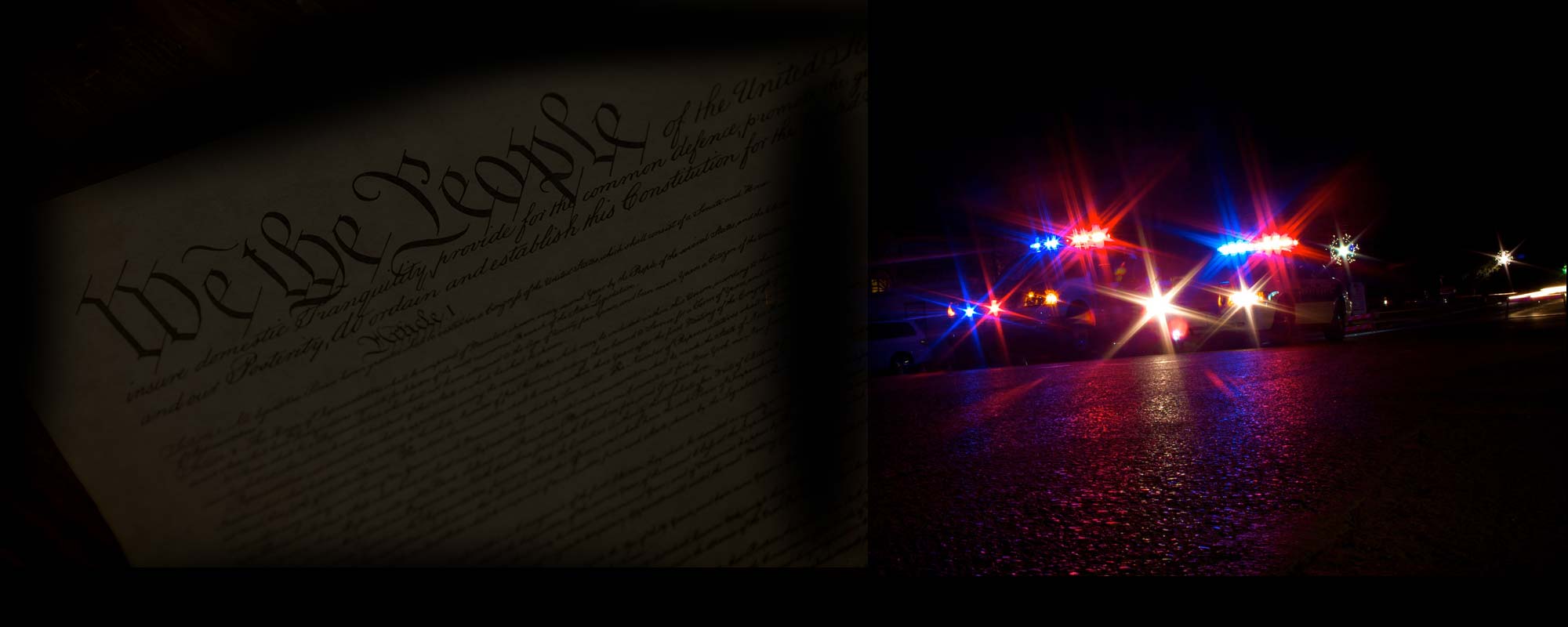I grew up professionally during the beginning and growth of three significant social movements of the past half century: the judicial movement which began in the early 60’s with the important civil liberties decisions of the U.S. Supreme Court concerning the Fourth, Fifth, Sixth and Fourteenth Amendments to the Constitution, the Civil Rights Movement, and the movement toward militarization and greater empowerment of the police. Using weapons of war, they went to war; on guns, drunk driving, drugs, and most disturbingly, the Bill of Rights.
After 50 years of criminal trial law practice, what has happened is the first two movements, civil rights and civil liberties U.S. Supreme Court decisions have stagnated, or regressed, while there has been steady growth of the third, police power. That growth has had one outstanding characteristic, expressed in various forms — engagement with the police. That engagement has accomplished nothing good. When we engage by talking, and giving evidence against ourselves to the police, argue with them, fight with, or run from them, bad things happen for those communities with whom the police have made it their business to have the most contact — minorities. When we do these acts of engagement, all we accomplish is needless enhancement of their power far beyond the power they already have. When we engage with them, they become more than armed agents of the government with the power to arrest. When we engage with them, we elevate them to be judges and lawyers. They are neither. All too often they become executioners.
What we all need to do, especially the minority communities, is try something new; something new to the police and new to those who interact with them, but well known to the great minds of history; the philosophers, social observers, and commentators of the last 2,500 years, whose thinking is unanimous on the value of disengagement by silence; not talking to, not arguing or disagreeing with the police. Some of that unanimous vote of confidence in the value of silence is collected and quoted throughout “A Toast to Silence”. That consistent vote of confidence in the value of silence should not be ignored.
To the contrary, it should be the new approach to and during police encounters. If we really want to make black lives, and all lives matter, then instead of engaging with the police, which the history of the last 50 years has shown doesn’t work, because it only empowers the police more, try the opposite — disengagement by silence; plain, simple silence. If that causes your arrest, let them take you in without your protest or resistance. Widespread factually baseless “stop and frisk” got the attention of the Courts and was declared unconstitutional as conducted by the New York City Police Department. Just imagine what will happen if widespread baseless arrests start to happen and the arresting officer brings you before a judicial office as the law requires, to explain under oath what you did to cause your arrest. What is the cop going to say? All he can say is you were arrested because you remained silent and peacefully submitted to arrest. If a judicial officer issues a warrant charging you with an offense, the next step in the process is prosecuting you. For what are you to be prosecuted, your silence? Even if you are silent at the onset of a police encounter to the extent of not identifying yourself, the most that will happen is an immediate arrest and a trip to the judicial officer. The cops can’t go any further without any evidence from you, the main source of which is your mouth. Do nothing, and say nothing. After the short-lived inconvenience of an arrest, you will most likely be released on some form of bond or recognizance, and you will eventually prevail where it counts, in court, if the police and a prosecutor are stupid enough to press a court case against you because all you did was remain silent.
Today’s discussions about the police and race accomplish little because they are not much more than seemingly endless problem description. No one is telling the minority communities about problem solutions. These folks are the victims of police power. The solution is shifting the power back to the individual simply by starting with the absolute, constitutionality guaranteed right to remain silent — the real power — which no amount of police power can overcome.
Most folks are misinformed about what happens if they are arrested, how to talk (not talk) to a police officer, before the point of arrest, and are, therefore, fearful of arrest. If they become informed, the fear will stop, their fear-driven mistakes of not remaining silent, and giving evidence to the cops by talking will stop, and they will avoid what should really be feared — conviction in court. We will not get the information we need from the police nor the media. You’ll get it in “A Toast to Silence”. For the past half century, I have seen, lived through, and written about what happens at the courthouse; what happens to people who talk during police encounters. I’ve also seen, but not often enough, the benefit of silence. Silence has a far better track record in court than talking. “Silence is the true friend that never betrays.” – Confucius; it is the great and effective refuge against police power.






